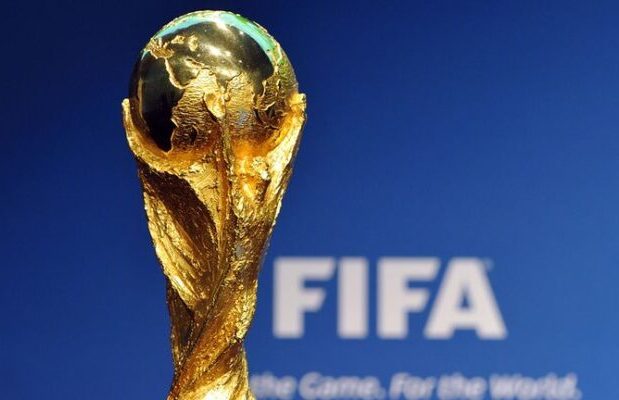- Arsenal Join Race for Dortmund Left-Back Svensson
- Pundit claims Arsenal players don’t trust Viktor Gyokeres
- Arsenal ‘pushing hard’ to sign Julian Alvarez
- Arsenal hold talks to sign Palmeiras teen Eduardo Conceicao
- Arsenal linked with summer move for Leon Goretzka
- Arsenal and Chelsea monitor Breno Bidon situation
- Arsenal track Ajax Amsterdam winger Mika Godts
- Arsenal ‘in the mix’ to sign Bayern Munich’s Lennart Karl
- Arsenal ‘mapping out’ a possible move for Kees Smit
- Arsenal plot swoop to sign Sandro Tonali in the summer
A guide to the 2026 FIFA World Cup: Format, tickets, host cities, favourites and more
The 2026 FIFA World Cup is gearing up to make history as it lands on North American shores, with the United States, Canada, and Mexico sharing hosting duties. It marks a return to the US for the first time since 1994 — and only the second time ever — with an expanded global stage awaiting.
This edition will be the largest yet, featuring 48 nations battling it out across 39 days for football’s ultimate prize. A total of 104 matches will be played from June 11 to July 19, showcasing the beautiful game like never before.
Host Cities and Schedule
Sixteen cities across the three nations will welcome the world. The United States will host the majority of the action, including every match from the quarter-finals onward. Group stage and some early knockout games will be spread across Canada and Mexico.
The grand finale is set for MetLife Stadium in New Jersey — a fitting venue for the biggest event in world sport. Other host cities include Los Angeles, Miami, Dallas, Seattle, Boston, Atlanta, Philadelphia, and Kansas City, alongside Toronto, Vancouver, Mexico City, and Guadalajara.
Who’s In So Far?
The 2026 tournament marks a major format shift, expanding from 32 to 48 teams. The hosts — USA, Canada, and Mexico — are automatic qualifiers. Among the confirmed participants so far are defending champions Argentina, as well as Japan, Iran, and New Zealand. The rest of the lineup will be confirmed by March 2026 following the conclusion of qualification rounds and intercontinental play-offs.
New Format, New Stakes
With more teams comes a new structure. The 48 qualifiers will be divided into 12 groups of four. The top two from each group, plus the eight best third-placed teams, will progress to the round of 32. From there, it’s a straight knockout path to glory at MetLife.
Where to Watch the Action
In the United States, fans can catch every match live on Fox Sports, with Spanish-language broadcasts available via Telemundo. While full broadcast details haven’t yet been released, it’s expected that streaming services like Hulu + Live TV, YouTube TV, and Tubi (for replays) will again be part of the mix, as they were in 2022.
Tickets Already in High Demand
Fans are wasting no time — demand for FIFA World Cup 2026 tickets is skyrocketing, with platforms like Seatsnet.com seeing surging sales. Even the White House is getting involved: former President Donald Trump announced a dedicated task force to support planning and logistics for the event.
The Early Favorites
While we’re still months away from kickoff, the usual suspects are already emerging as favorites.
Argentina, the reigning champs, will be eager to defend their title and could see Lionel Messi make a dramatic return for one final tilt at glory.
Brazil — still searching for their sixth star — are undergoing major changes. Rumors suggest Real Madrid boss Carlo Ancelotti might replace Dorival Júnior, in hopes of reviving the Selecao’s golden legacy.
Europe’s powerhouses won’t be far behind. Spain, England, and France are all expected to challenge. Spain, especially, could ride the momentum of their recent European Championship triumph. Portugal could also make headlines — especially if Cristiano Ronaldo seeks one last shot at a title that has long eluded him.
And don’t count out the hosts. With a young and promising squad, and Mauricio Pochettino at the helm, the United States could cause a few upsets on home turf.
The Extras: Music, Money, and the Road Ahead
FIFA president Gianni Infantino has confirmed that Coldplay will headline the halftime show at the 2026 World Cup final — bringing a bit of Super Bowl spectacle to football’s biggest event.
Before that, the 2025 FIFA Club World Cup will act as a dress rehearsal. For the first time, the Club World Cup will feature 32 teams and take place in the US, with MetLife also hosting its final.
Meanwhile, Trump’s World Cup task force — echoing a similar initiative led by Bill Clinton for the 1996 Olympics — will manage logistics as cities gear up for a tourism boom. Each host city is expected to welcome around 450,000 visitors and potentially rake in $480 million in tourism-related revenue.





